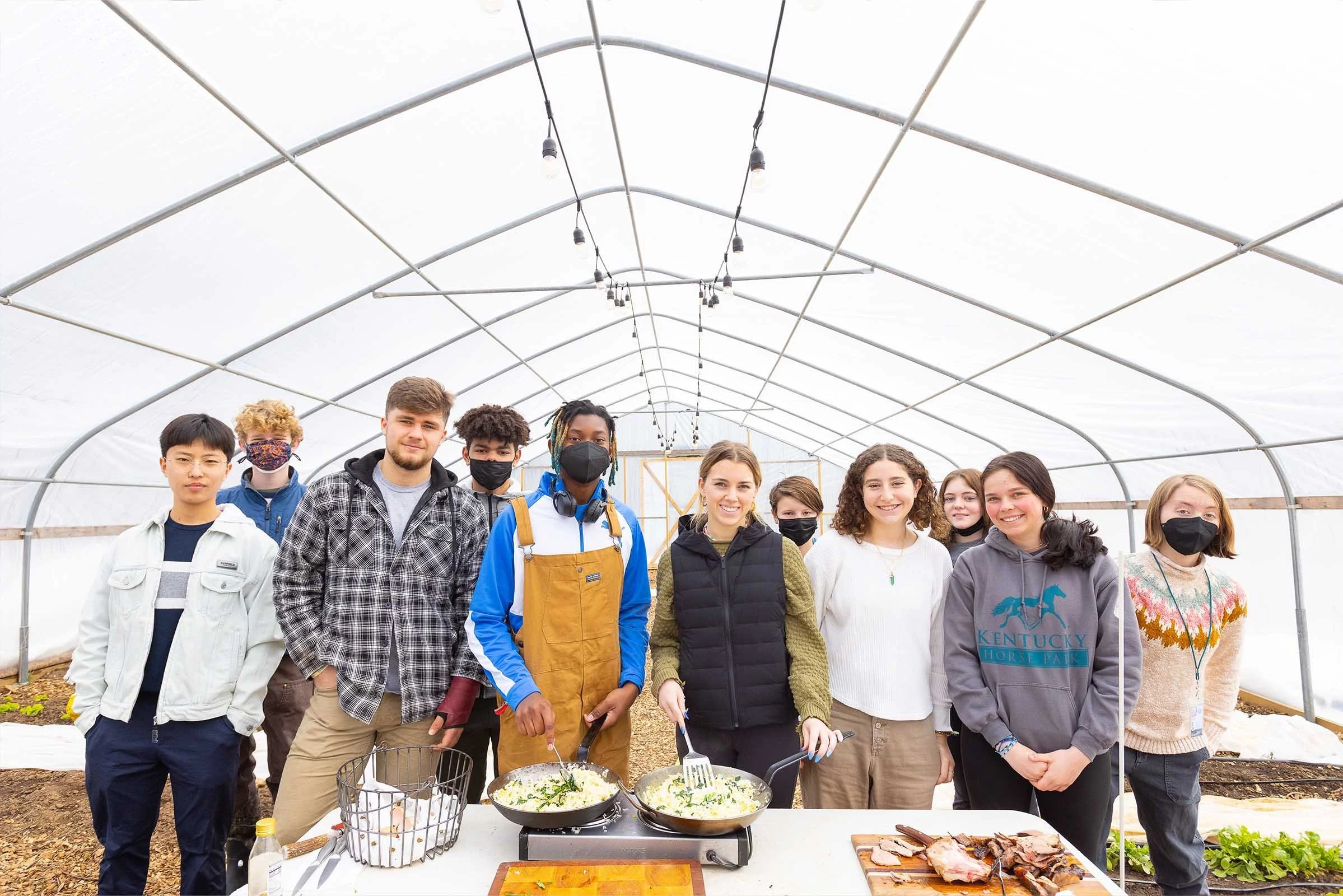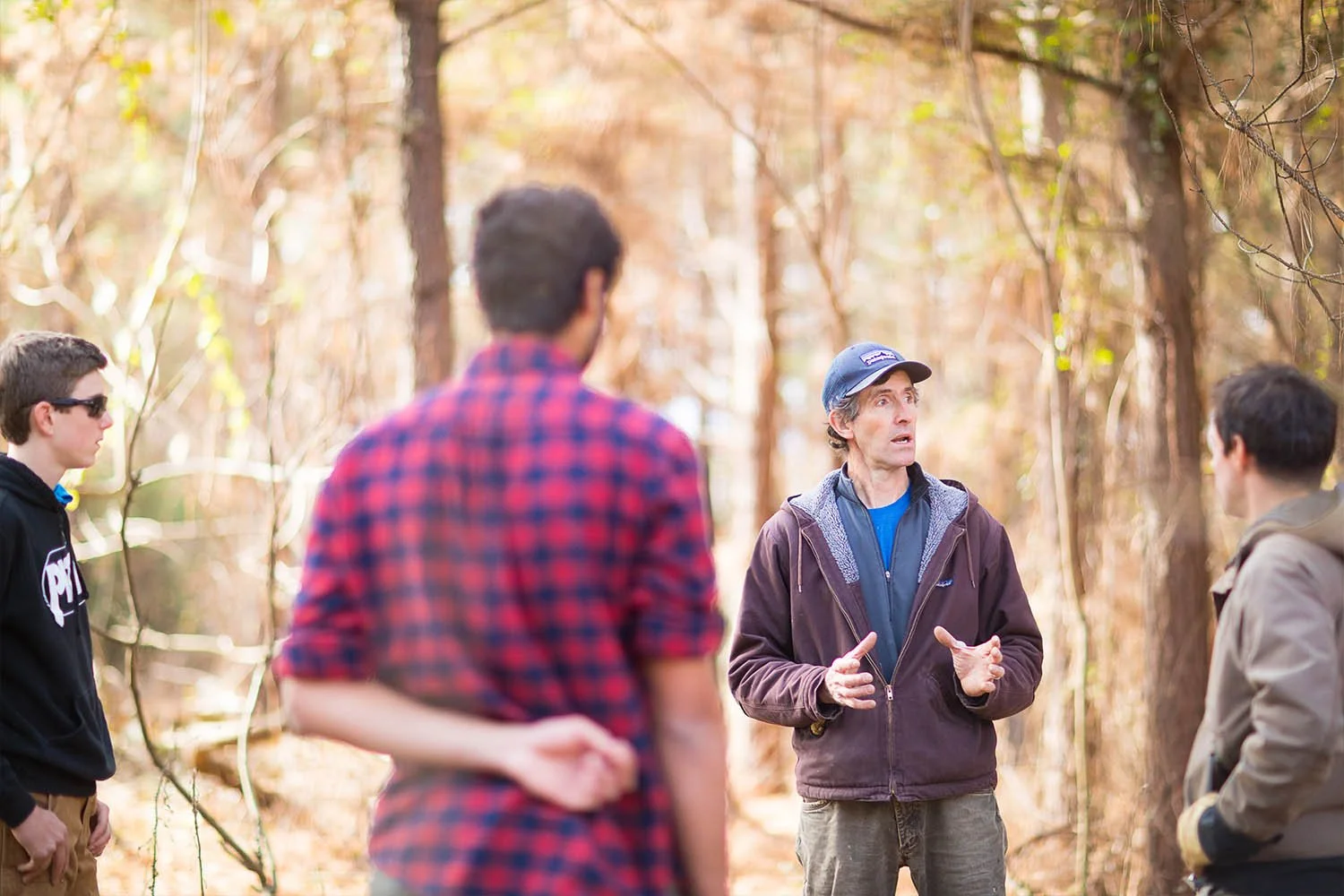Overview
Sustainable Agriculture is an in-depth and interdisciplinary class that provides students an opportunity to study a wide range of farming principles and practices, including permaculture, gardening, bee keeping, animal husbandry, land management, and farm-to-table cooking. Our working farm is a classroom like no other for hands-on learning.
customScrollSection
Return of the Farm
Miller School returns to its agrarian roots reviving agriculture program and working farm.
Farm Films
Get to know some of our Maverick farmers and learn how working on a farm daily has changed their school experience and enhanced their lives.
Farm Stories
MORE INFORMATION
-
Sustainable Agriculture is an in-depth and interdisciplinary class that provides students an opportunity to study a wide range of farming principles and practices. Returning to MSA’s agricultural roots, students study organic, no-till gardening, animal husbandry, hydroponics, and permaculture in a mission-focused and hands-on course. MSA’s 1,100-acre campus becomes a laboratory where students learn and experiment. The program includes a small farming operation with pigs, chickens, bees as well as three types of produce gardens--no-till, raised bed, and hydroponic. Students study the economics of agriculture and have an opportunity to learn marketing and small business management skills through selling meat, produce, honey, and other products from the farm in local farmers markets.
Learning sustainable agriculture at MSA introduces students to the many social and ethical impacts that food production can have. In addition to hands-on learning, students read articles and books related to the impact of the agriculture industry on health and society. Furthermore, students engage with local farmers and organizations such as Bundoran Farm, Polyface Farms, and Chiles Orchards to learn more about local agriculture in Charlottesville.
-
Sustainable Agriculture is both an academic study of farming and agriculture as well as a hands-on, experiential learning experience. The course will follow a traditional structure for academic material. This will include units on particular areas of agriculture and topics specific to MSA’s farm. The experiential learning will be organized around the current needs of the farm. Meaning, students will complete tasks and activities needed to build and run a real food farm.
Unit 1: Farming Literacy
Students begin their study of agriculture by learning the basics of farm life, including safety, routines, habits, and vocabulary. From knowing the difference between meat chicken and an egg laying chicken to knowing the tools used daily in farm work, students gain the knowledge and skills needed to speak fluently about farming. Students will also learn about the history of agricultural learning at MSA.
Reading List
The Anatomy of a Farm
Unit 2: Types of Agriculture
What is a farm? Depending on where you live and your desired outcomes, the answer to this question can have a wide variety of answers. Students study the full range of agriculture in the United States. They examine the rise of industrial agriculture and compare it to traditional family farming and the current shift to sustainable agriculture. Consideration is given to the economics of each type of agriculture as well as the impact on the land and animals in the short and long-term. Additionally, students examine permaculture, agroforestry, biodynamics, silvopasture, hydroponics, and aquaponics.
Reading List
The Third Plate, by Dan Barber
Film
The Biggest Little Farm
Dan Barber - Chef to Table
Unit 3: Soil-The Starting Point
The foundation of all farm life is the soil. Understanding the importance of healthy soil is key to a healthy and sustainable farm. Students study the history of soil in farming and the dangers of unhealthy soil. They learn how to bring soil back to life through vermicomposting and other methods of regeneration.
Reading List
Soul of Soil Fourth Edition, by Grace Gershuny and Joe Smillie,
Growing a Revolution: Bringing Our Soil Back to Life (excerpts)
The Organic No-Till Farming Revolution (excerpts)
Film
Kiss the Ground
Unit 4: Pigs and Large Animal Livestock
Students learn animal husbandry, specifically how to manage and care for the rare, heritage breed pigs on the MSA farm. They will learn the difference between conventional and humane animal treatment as well as industrial versus pasture livestock. Lessons will include animal anatomy, rotation and fencing, nutritional values of different feeds, and harvesting. Students will learn about artificial insemination and MSA’s unique breed of Mulefoot and Berkshire pigs.
Reading List
Homegrown Pork: Humane, Healthful Techniques for Raising a Pig for Food
Sacred Cow, by Diana Rodgers, RD and Robb Wolf (excerpts)
Film
Sacred Cow
Unit 5: Chickens
Students learn animal husbandry, specifically how to manage and care for the chickens on the MSA farm. They will learn the difference between conventional and humane animal treatment as well as industrial versus pasture livestock. Lessons will include animal anatomy, rotation and fencing, nutritional values of different feeds.
Reading List
The Chicken Whisperer’s Guide to Keeping Chickens
Unit 6: Pollinators
Students learn about the power of the bee as a pollinator. Specifically, students study types of bees, bee anatomy, and hives. They learn how to choose equipment and manage healthy colonies through every season.
Unit 7: Garden
Students examine three distinct forms of gardening--no till, raised bed, and hydroponic. They examine the quality of the produce, risks associated with each method, and the nutrient values of final products.
Unit 8: Processing / Harvesting
Processing and harvesting animals, honey, and vegetables is an important part of any farming operation. Students learn the ethics of how to harvest well. Additionally, students examine the role of the butcher and how meat is brought to the marketplace.
Unit 9: The Market: Entrepreneurship + Farming
From small-scale to large-scale farms, success in farming requires careful planning and entrepreneurial skills. This unit looks at how sustainable farming can be financially successful. Case studies of small local farms and large-scale regenerative farming operations are examined. Guest speakers will tell their stories to bring to life the economics of farming for students.
Unit 10: Beyond Food
Farms can provide more than food. This unit examines how nature and farm products can improve human health with herbalism. Students learn how to create skincare products, healing salve, and other natural health products. Overall, this unit will look big-picture at how sustainable agriculture has the potential to improve human health and the health of the environment.
-
Zac Culbertson
✉︎ zculberson@millerschool.orgPeter Hufnagel
✉︎ phufnagel@millerschool.org










